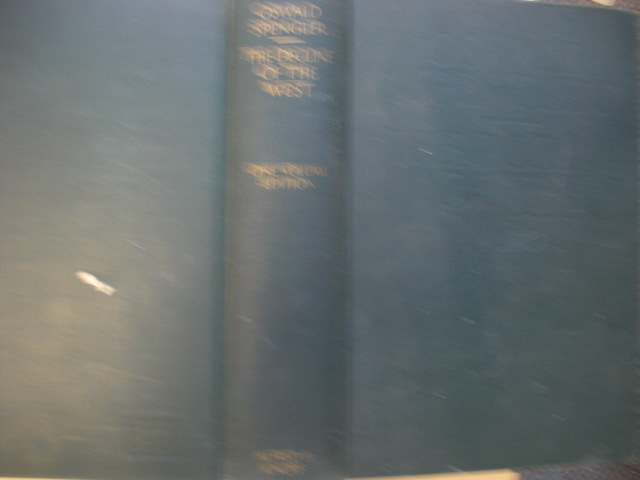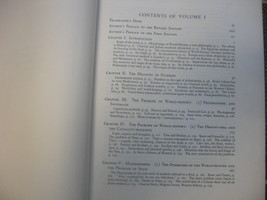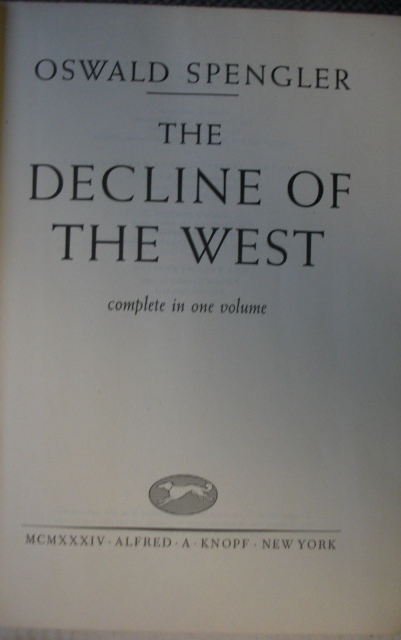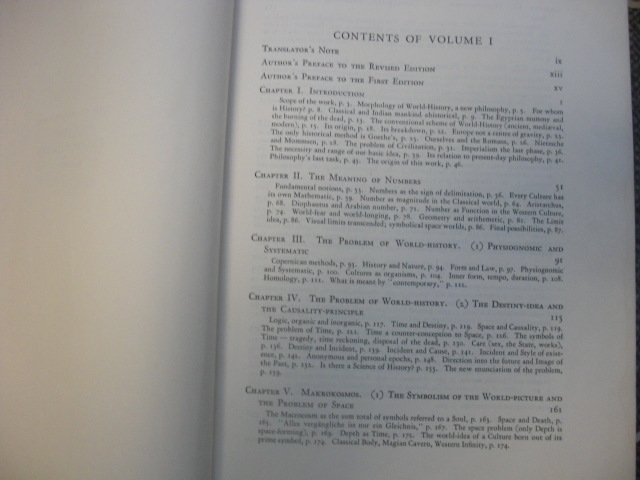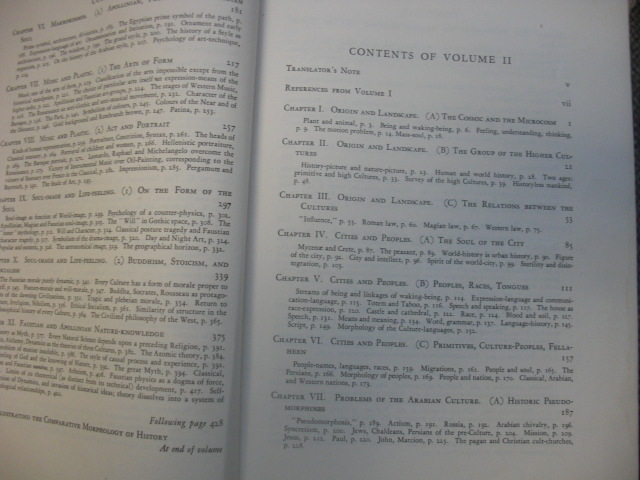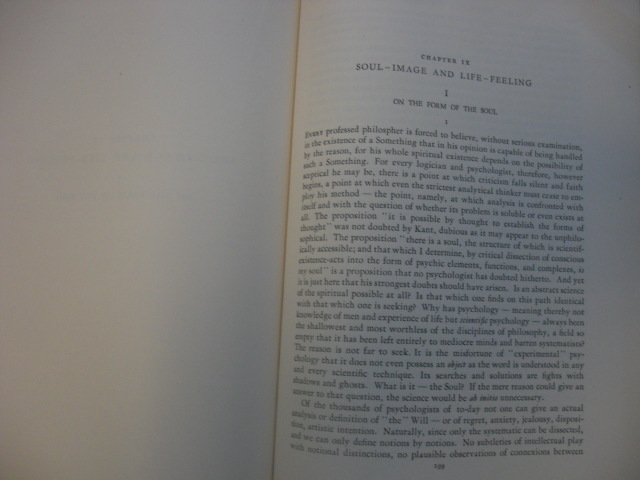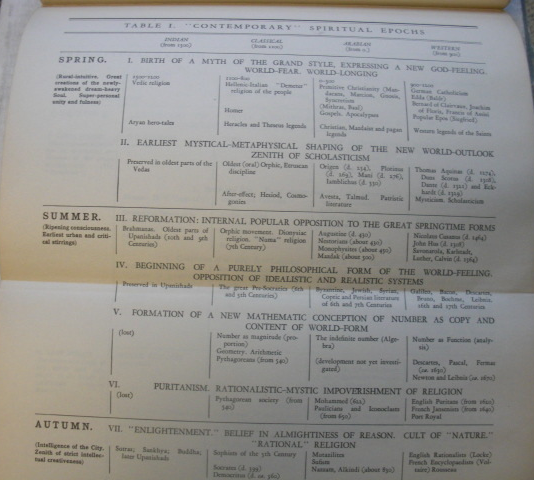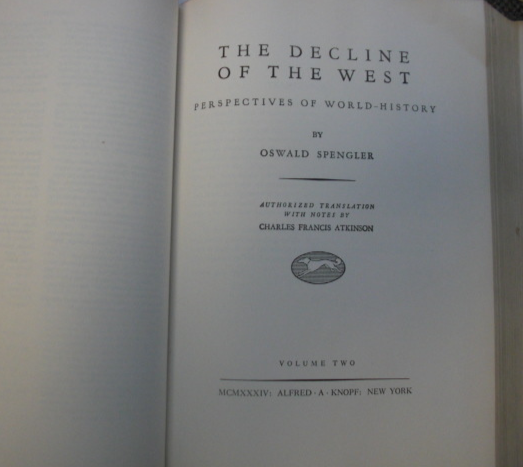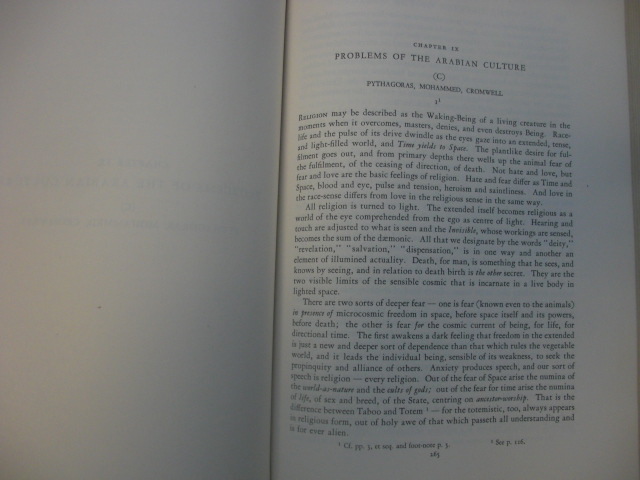Rendered at 09:41:42 05/12/25
Free Shipping
The Decline of the West, complete in one Volume: written by Oswald Spengler, C.
£113.84 GBP
Ships from
United States

Shipping options
FREE in United Kingdom
Ships from
United States

Return policy
Purchase protection
Payment options
PayPal accepted
PayPal Credit accepted
Venmo accepted
PayPal, MasterCard, Visa, Discover, and American Express accepted
Maestro accepted
Amazon Pay accepted
Nuvei accepted
Shipping options
FREE in United Kingdom
Ships from
United States

Return policy
Purchase protection
Payment options
PayPal accepted
PayPal Credit accepted
Venmo accepted
PayPal, MasterCard, Visa, Discover, and American Express accepted
Maestro accepted
Amazon Pay accepted
Nuvei accepted
Item traits
| Category: | |
|---|---|
| Quantity Available: |
Only one in stock, order soon |
| Condition: |
Very Good |
| Field of Study: |
History |
| Format: |
Hardcover |
| Type: |
Textbook |
| Topic: |
History of Philosophy |
| Special Attributes: |
Revised Edition |
| Language: |
English |
| Publication Year: |
1934 |
| Country/Region of Manufacture: |
United States |
| Author: |
Oswald Spengler |
| Publisher: |
Alfred A. Knopf |
Listing details
| Shipping discount: |
Seller pays shipping for this item. |
|---|---|
| Price discount: |
10% off w/ $100.00 spent |
| Posted for sale: |
More than a week ago |
| Item number: |
1375548601 |
Item description
Since its first publication in two volumes between 1918-1923, The Decline of the West has ranked as one of the most widely read and most talked about books of our time. In all its various editions, it has sold nearly 100,000 copies. A twentieth-century Cassandra, Oswald Spengler thoroughly probed the origin and "fate" of our civilization, and the result can be (and has been) read as a prophesy of the Nazi regime. His challenging views have led to harsh criticism over the years, but the knowledge and eloquence that went into his sweeping study of Western culture have kept The Decline of the West alive. As the face of Germany and Europe as a whole continues to change each day, The Decline of the West cannot be ignored.
The abridgment, prepared by the German scholar Helmut Werner, with the blessing of the Spengler estate, consists of selections from the original (translated into English by Charles Francis Atkinson) linked by explanatory passages which have been put into English by Arthur Helps. H. Stuart Hughes has written a new introduction for this edition.
In this engrossing and highly controversial philosophy of history, Spengler describes how we have entered into a centuries-long "world-historical" phase comparable to late antiquity. Guided by the philosophies of Goethe and Nietzsche, he rejects linear progression, and instead presents a world view based on the cyclical rise and decline of civilizations. He argues that a culture blossoms from the soil of a definable landscape and dies when it has exhausted all of its possibilities.
Despite Spengler's reputation today as an extreme pessimist, The Decline of the West remains essential reading for anyone interested in the history of civilization.
Oswald Spengler was born in 1880 in Blankenburg (then in the Duchy of Brunswick, German Empire) at the foot of the Harz mountains, the eldest of four children, and the only boy. His family was conservative German of the petite bourgeoisie. His father, originally a mining technician, who came from a long line of mineworkers, was a post office bureaucrat. His childhood home was emotionally reserved, and the young Spengler turned to books and the great cultural personalities for succor. He had imperfect health, and suffered throughout his life from migraine headaches and from an anxiety complex.
At the age of ten, his family moved to the university city of Halle. Here Spengler received a classical education at the local Gymnasium (academically oriented secondary school), studying Greek, Latin, mathematics and natural sciences. Here, too, he developed his affinity for the arts—especially poetry, drama, and music—and came under the influence of the ideas of Goethe and Nietzsche. He even experimented with a few artistic creations, some of which still survive.
After his father's death in 1901 Spengler attended several universities (Munich, Berlin, and Halle) as a private scholar, taking courses in a wide range of subjects: history, philosophy, mathematics, natural science, literature, the classics, music, and fine arts. His private studies were undirected. In 1903, he failed his doctoral thesis on Heraclitus because of insufficient references, which effectively ended his chances of an academic career. In 1904 he received his Ph.D., and in 1905 suffered a nervous breakdown.
Scholars[which?] remark that his life seemed rather uneventful. He briefly served as a teacher in Saarbrücken and then in Düsseldorf. From 1908 to 1911 he worked at a grammar school (Realgymnasium) in Hamburg, where he taught science, German history, and mathematics.
In 1911, following his mother's death, he moved to Munich, where he would live until his death in 1936. He lived as a cloistered scholar, supported by his modest inheritance. Spengler survived on very limited means and was marked by loneliness. He owned no books, and took jobs as a tutor or wrote for magazines to earn additional income.
He began work on the first volume of Decline of the West intending at first to focus on Germany within Europe, but the Agadir Crisis affected him deeply, and he widened the scope of his study. Spengler was inspired by Otto Seeck's work The Decline of Antiquity in naming his own effort. The book was completed in 1914, but publishing was delayed by World War I. Due to a congenital heart problem, he was not called up for military service. During the war, however, his inheritance was largely useless because it was invested overseas; thus Spengler lived in genuine poverty for this period.
Added to your wish list!
Get an item reminder
We'll email you a link to your item now and follow up with a single reminder (if you'd like one). That's it! No spam, no hassle.
Already have an account?
Log in and add this item to your wish list.


